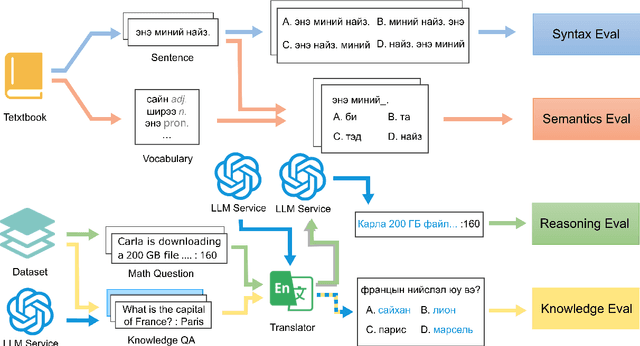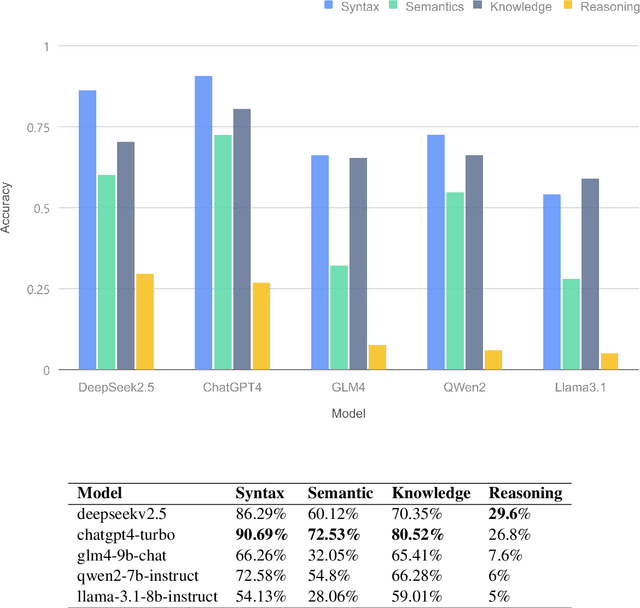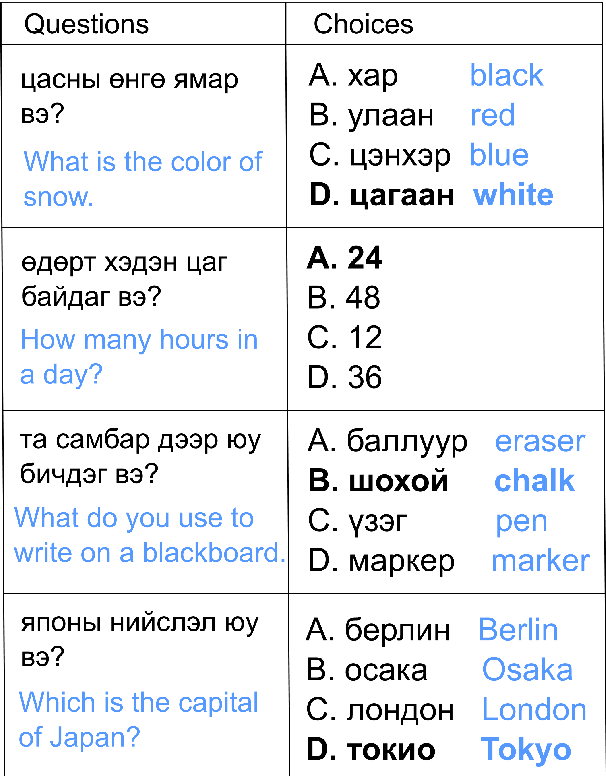Ruihui Wang
MM-Eval: A Hierarchical Benchmark for Modern Mongolian Evaluation in LLMs
Nov 14, 2024


Abstract:Large language models (LLMs) excel in high-resource languages but face notable challenges in low-resource languages like Mongolian. This paper addresses these challenges by categorizing capabilities into language abilities (syntax and semantics) and cognitive abilities (knowledge and reasoning). To systematically evaluate these areas, we developed MM-Eval, a specialized dataset based on Modern Mongolian Language Textbook I and enriched with WebQSP and MGSM datasets. Preliminary experiments on models including Qwen2-7B-Instruct, GLM4-9b-chat, Llama3.1-8B-Instruct, GPT-4, and DeepseekV2.5 revealed that: 1) all models performed better on syntactic tasks than semantic tasks, highlighting a gap in deeper language understanding; and 2) knowledge tasks showed a moderate decline, suggesting that models can transfer general knowledge from high-resource to low-resource contexts. The release of MM-Eval, comprising 569 syntax, 677 semantics, 344 knowledge, and 250 reasoning tasks, offers valuable insights for advancing NLP and LLMs in low-resource languages like Mongolian. The dataset is available at https://github.com/joenahm/MM-Eval.
 Add to Chrome
Add to Chrome Add to Firefox
Add to Firefox Add to Edge
Add to Edge